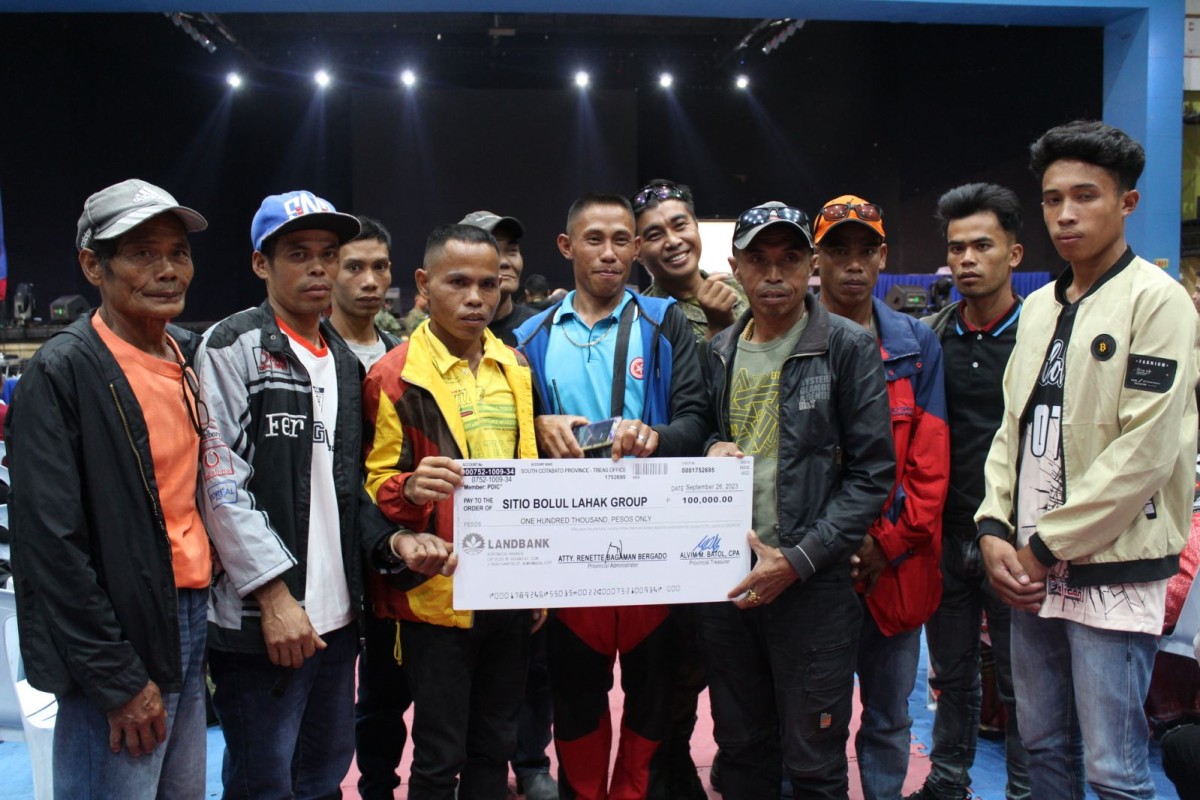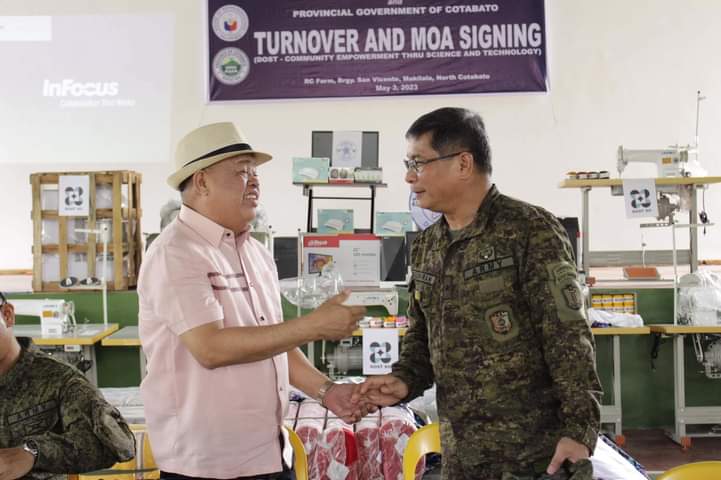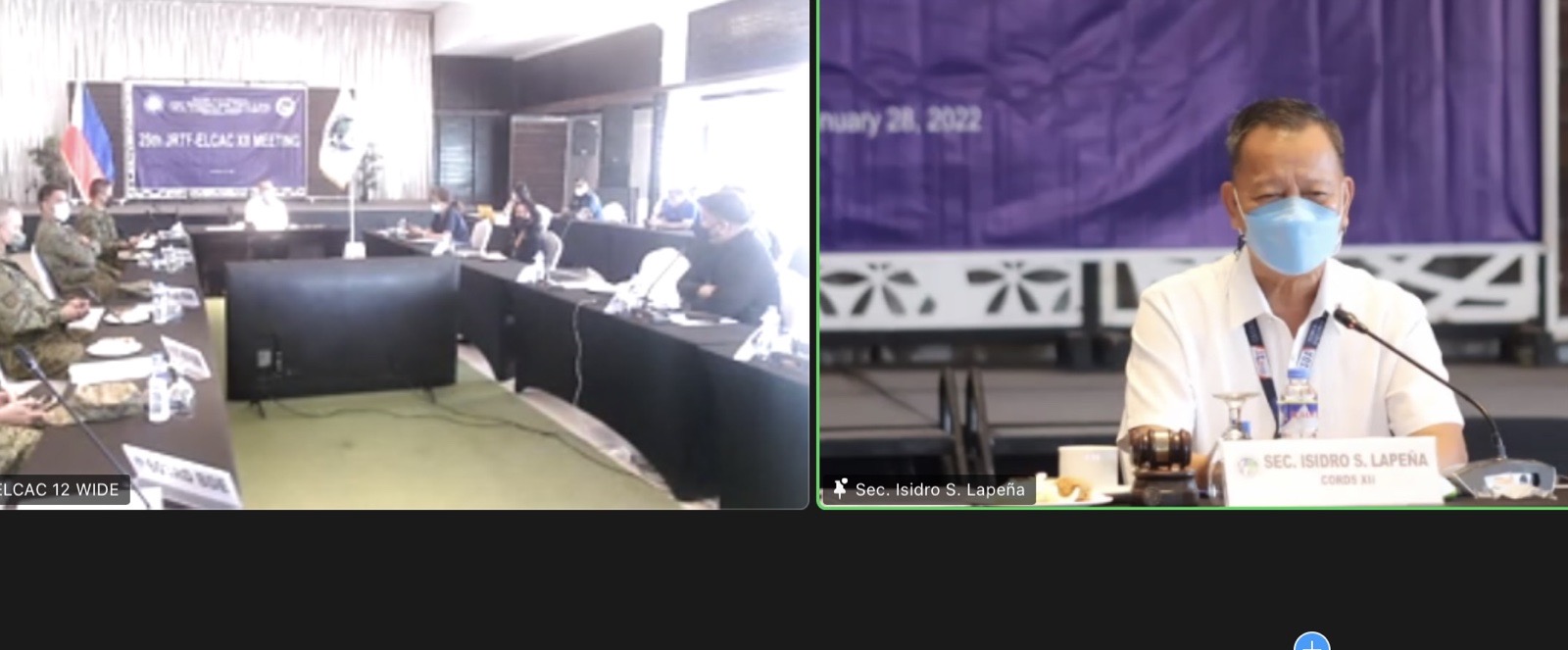The Philippine Army is playing a pivotal role in bridging the gap between the government and isolated communities in South Cotabato.
Earlier this year, troops of the 12th Special Forces Company and 11th Special Forces Company helped form people’s organizations (PO), composed of residents belonging to the Blaan and Tboli communities in the hinterlands of Lake Sebu and Tboli, which are considered geographically isolated and disadvantaged areas (GIDA).

5th Special Forces Battalion Commander Lt. Col. Carlyleo Nagac said this concerted effort is part of the peace and development initiatives of the Philippine Army under the National Task Force to End Local Communist Armed Conflict (NTF-ELCAC).
Hence, with the aid of the Philippine Army, these groups are now duly registered as accredited people's organizations under the Department of Labor and Employment (DOLE), making them qualified for more government aid.
In fact, Lt. Col. Nagac said that of the 11 organizations, four of them, with some combined 200 members, recently received financial aid for their chosen livelihood projects.
The beneficiaries were the Slong Farmers Association, Datal Kadi Integrated Farmers Association, Bolul Lahak Farmers Association, and RST Motosom Group.
The organizations each received P100,000 as start-up capital under the provincial government of South Cotabato’s “Alalay sa Negosyo Ginhawa at Trabaho (ANGAT) Program.”
Nagac said the effort “aims to ensure that essential aid and services reach these far-flung areas in the hope of improving the lives of residents and shielding them from the influence of the communist-terrorist group (CTG).”
He described GIDAs as "conflict-affected areas" and the most susceptible places for recruitment by the CTG, emphasizing the need to consistently secure the areas to be able to sustain the initial gains that have already been reaped with the implementation of the NTF-ELCAC since 2018.
The army commander highlighted “the importance of a whole-of-government approach and collaboration” from all government agencies in providing services to these communities to prevent members of the communities from re-joining any insurgency group and keep the communities free of the clutches and occupation of the CTG.
According to Nagac, the anti-insurgency efforts of the government are also given a boost with the continued vigilance and cooperation of residents.
“Our intervention in these areas is a way of bringing much-focused attention so that they would be prioritized by government programs,” he added.
Nagac explained that the cooperation of residents is a clear manifestation of the trust and confidence they have in the government in ending insurgencies and other-related violence perpetrated by the Communist Party of the Philippines-New People’s Army (CPP-NPA).
“Basically, the problem is livelihood. We went there, identified their needs, and spearheaded the creation of people’s organizations,” he told the Philippine Information Agency.

Ronny Dading, leader of the Sitio Bolul Lahak Farmers Association, said they are grateful for the government’s assistance.
“Dako gid ang amon pasalamat sa gobyerno, sa army kag kay Governor Tamayo kay nahatagan kami sing P100,000 para sa project [We are very thankful to the government, to the army, and to Governor Tamayo for giving us P100,000 for our project],” he said.
Dading emphasized that the fund will be utilized to improve and sustain their livelihood projects, including activities in farming and agriculture, handicraft production, and skills training.
He said that they chose corn production, believing that this would enable the community to cultivate a staple crop, ensuring a consistent source of food and income for them.
Other beneficiaries have also considered cattle breeding as additional economic opportunities for the community and T’nalak weaving to promote and preserve their culture.
Meanwhile, the Philippine Army views this financial assistance as a way to not only provide economic opportunities for the beneficiaries but also promote self-reliance and reduce dependency on external assistance.
Nagac said that they feel happy that these indigenous people (IP) communities, which had once been influenced by the CTG, are now emerging as gatekeepers of peace and progress alongside government forces.
The CTG, who once relied on fear and intimidation, now found their influence on these IP communities waning, with them rejecting violence and extremism and valuing a peaceful existence and stable future. (ORVR – PIA Region 12)





